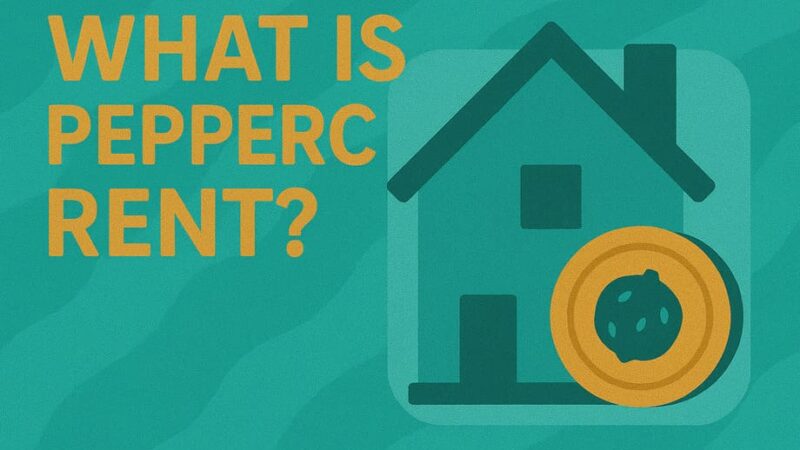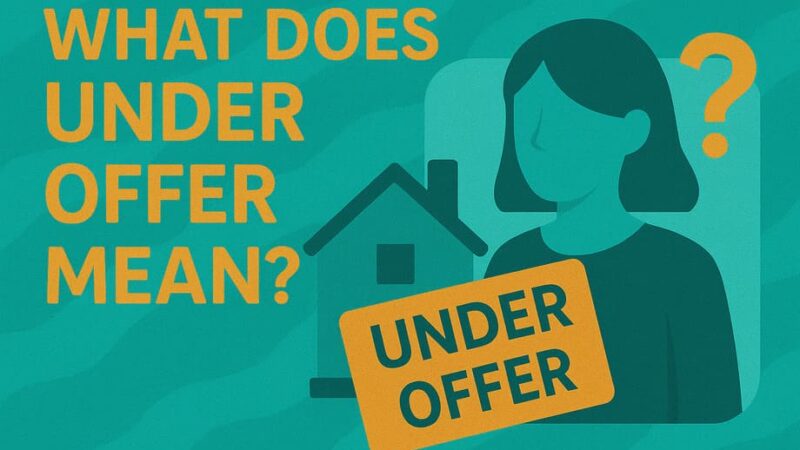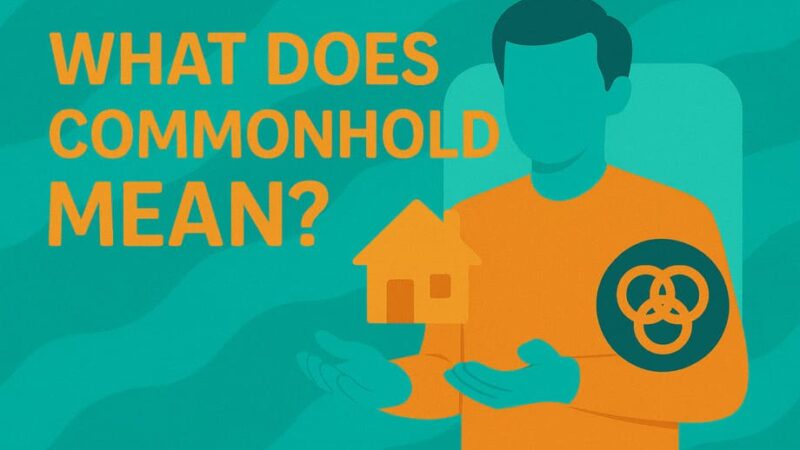Who Gets the House in a Divorce?

What happens to the house when a couple divorces?
One of the most valuable matrimonial assets that couples have is the family home. Ideally, all assets should be divided between you and your spouse. This includes the marital home, even if only one individual contributed to its purchase or acquisition. The division of assets is usually based on the financial needs of each person and their contributions to the marriage.
It can be frustrating for divorcing couples to find out, but unfortunately there is no simple and clear-cut answer to who gets the house. There is no such thing as a ‘standard split’ of assets such as the family home. There is no ‘one-size-fits-all’ formula to apply to different ‘types’ of divorcing couples: it simply depends on the circumstances of the marriage, and not always on the legal ownership of the home or who made the mortgage payments.
Of course, it is far better to come to an agreement between yourselves about how assets should be divided, and this is where mediation, arbitration and collaborative law may help you decide. However, if you can’t agree, then either of you can apply to the court so it can decide for you.
Your options for dealing with the family home typically include:
- One spouse buying out the other’s share of the property
- Selling the home and dividing the proceeds
- Postponing a sale until your children are older or another trigger event occurs
- Offsetting the house value against other matrimonial assets such as pensions
Depending on the value of any other assets, it may also be possible to offset one person’s interest in the home against another asset. For example, perhaps one of you will keep the family home in exchange for the other keeping a pension fund or business interest.
Who gets to stay in the house during a divorce?
It doesn’t matter if you rent or own your home, or whether it’s in just one or both of your names, you could both still have the right to live or stay there. In the UK, if you bought your home together, you are both equally and legally entitled to stay there during divorce proceedings.
Neither spouse can be forced to leave the matrimonial home without a court order, regardless of whose name appears on the property deeds. This means that changing locks, removing belongings, or otherwise excluding your spouse is unlawful and could have serious legal consequences.
During a divorce, your financial agreement will decide whether the person who stays in the home should buy the other’s share, whether your house will be sold and the proceeds split, or if the person who has primary care of the children should stay until the children leave home.
If you’re not sure whether you should leave your marital home, or if you can ask your partner to leave, always seek legal advice before taking any action. Do not just leave your home because your partner tells you that you should.
Both spouses have what are called “home rights” under the Family Law Act 1996, which protect your right to occupy the matrimonial home until the divorce is finalised and financial arrangements are settled.
How does the court decide who to give the house to in a divorce?
In the UK, when a court imposes financial remedies to split the assets, it will make the decision based upon several key factors:
- Any children under 18 in the marriage, their needs, and whom they live with
- The age of each spouse
- The length of the marriage
- The value of assets, both before, during and after the marriage – this can also include pensions
- The earning capacity of each spouse and their responsibilities during the marriage (such as child-rearing) and in the future
- What each spouse contributed to the marriage in terms of finances and assets (and may contribute in the future towards the family’s welfare)
- The standard of living during the marriage
- If either party has a disability
- The conduct of the parties (although this is considered only in exceptional circumstances)
- The overall needs of each party
The court will always endeavour to meet the needs of any children first, and then the needs of the spouses secondly. Children’s welfare is the paramount consideration, and this often influences housing arrangements significantly.
When it has made its decision, the court may issue a property adjustment order as part of the financial settlement. Common orders include:
Transferring the property from one spouse to the other – This could involve one spouse buying out the other’s share, often with the assistance of a new mortgage or using other assets.
Postponing the home’s sale to a specific date or event, such as when the youngest child turns 18 or finishes education. This is sometimes called a Mesher order or Martin order, depending on the specific terms.
Selling the house and dividing the proceeds – Usually ordered if there are no children, and if neither spouse can afford to stay in the home, or both can afford alternative accommodation.
The court’s primary concern is achieving a fair outcome that meets both parties’ reasonable housing needs while prioritising children’s welfare where applicable.
What legal rights do I have to my home during a divorce?
It is normal for one spouse to move out of the family home during separation and divorce in order to reduce sources of tension and conflict. This does not mean that the non-resident spouse automatically forfeits any rights to the ownership and occupation of the house.
In the UK, both spouses have legal ‘home rights’ until a financial settlement is made, or until financial remedies are imposed by the court as a permanent arrangement. Home rights refers to your rights to the family home, even if you don’t legally own it or are not named on the mortgage.
This means that neither spouse can be forced to leave the matrimonial home without a court order, unless there are exceptional circumstances such as domestic violence.
Home rights are useful in the short-term before anything is finalised by the courts, but cannot determine long-term decisions such as who gets to own or live in the property permanently, or whether the property will be sold.
If you are married, own your home (either outright or with a mortgage) and live in the UK, home rights give you the right to:
- Stay in your home unless a court order specifically excludes you from being there
- Ask the court to allow you to return to the home if you moved out
- Register your home rights with the Land Registry as a ‘charge’ on the property, so it cannot be sold, transferred or have a mortgage taken out on it without your knowledge
- Pay the mortgage (if the person named on the mortgage stops making the payments)
- Know of any repossession action taken by your mortgage lender (providing you have registered your home rights with the Land Registry)
- Apply to be joined in any mortgage possession proceedings being taken by the lender
These rights apply only until the divorce has been finalised and the financial settlement agreed by the courts, which may be before or after the divorce itself.
Who gets the house in a divorce with children?
If you’re getting divorced and you have children, your primary concern is probably for their welfare and keeping them in your family home to minimise upheaval. However, just because you have primary care of your children, it doesn’t automatically mean you are entitled to stay in your house.
The court’s desire to minimise trauma and upheaval to children may sometimes involve ordering that they stay with the primary carer in the family home. This decision takes into account several factors:
Children’s stability and continuity – Courts recognise that children need stability during the upheaval of divorce, and maintaining their home environment can be crucial for their emotional wellbeing.
School and community connections – Keeping children in the same school and maintaining their friendships and activities is often considered important for their development.
Practical living arrangements – The suitability of the property for the children’s needs, including space, location, and accessibility.
Financial viability – Whether the parent with primary care can afford to maintain the property, including mortgage payments and household expenses.
If you can’t agree who gets the house and have to ask a court to impose financial remedies, then the court will give priority to your children’s needs and welfare in relation to their living arrangements, especially if they are under 18, subject to the financial resources available to both parties.
The arrangement may be part of an offsetting agreement, where one spouse gets the house but receives no spousal maintenance, or forfeits rights to the other’s pension. Every case is unique in its complications and will nearly always require detailed legal advice.
Common arrangements when children are involved include immediate transfer to the primary carer, deferred sale until children reach majority or finish education, or life interest arrangements providing long-term security.
What if the property is not owned in joint names?
When property is owned by one spouse alone, it does not prevent both parties from having legal interests in the house, but you must seek urgent legal advice to ensure your interest can be protected.
If the home is in your spouse’s sole name:
You have home rights if your spouse legally owns the property solely in their name (as registered with the Land Registry) but it is or was lived in by both of you as the family home. If this is the case, it’s really important that you register your home rights with the Land Registry.
This registers your rights as a charge on the property, meaning it cannot be sold, transferred or mortgaged without your knowledge. There are two steps to registering your home rights:
First, find out if the home is registered with the Land Registry (and if so, find its title number and in whose name it is registered). You can search the register online through the government website.
If the home is registered, you can apply to register your home rights through the appropriate government portal. If the home is unregistered, there is a different application process for unregistered properties.
These rights apply only until the financial settlement or financial remedies are finalised by the court, at which point a permanent arrangement will take effect. A matrimonial homes rights notice also comes to an end on the pronouncement of the final order, so it is important that a settlement is reached and implemented before the final order is pronounced.
If the house is in your sole name:
If you’re the sole legal owner, you don’t need home rights as your right to the property comes from your legal ownership. However, your spouse who doesn’t legally own the home still has home rights until the financial settlement is finalised, and they may still have a claim to the property’s value in the divorce settlement.
Joint legal ownership:
If you’re both registered as legal owners (on the title deeds) then your rights to remain in the home come from that legal ownership, rather than from home rights. The principles are very similar: you both have the right to stay in the house and return to it if you temporarily moved out.
If your house is in joint names and you can’t agree a permanent settlement between yourselves on what to do with it after your divorce, then the court can make a number of property adjustment orders as part of its financial remedies.
Do I lose the house if I move out?
Not necessarily. You still have short-term home rights even if you move out, which means you can still return to the home until a permanent arrangement is agreed and formalised by the court.
Moving out of the matrimonial home does not constitute abandonment of your rights to the property. This is a crucial point that many people misunderstand. Your legal rights to the property continue regardless of where you are currently living.
If you move out and you can’t agree a permanent solution regarding the house after your divorce, the courts can decide for you in the form of financial remedies. The court is not biased against the spouse who moved out, and will make a decision based on the various factors outlined earlier.
However, there are practical considerations to bear in mind if you’re thinking of moving out:
Take essential belongings with you, including personal items, important documents, and items of sentimental value.
Notify relevant parties of your new address, including banks, employers, and government departments.
Continue contributing to household expenses if possible, including mortgage payments, to demonstrate ongoing commitment to the property.
Arrange access for collecting remaining belongings, preferably with your spouse’s agreement.
Keep records showing that your move was temporary or for practical reasons rather than abandonment of your interest in the property.
Many people move out to reduce conflict and tension, particularly when children are involved, and this can actually benefit long-term relationships and make negotiations easier.
Who is responsible for the mortgage when we are divorcing?
Mortgage responsibility depends on who is named on the mortgage agreement, and this is separate from property ownership rights.
If you are both named on the mortgage:
This creates what’s called joint and several liability. You are both responsible and liable for paying the mortgage. That doesn’t mean you are both liable for half each though – if one person doesn’t pay their share, the other can still be held responsible for the whole mortgage.
It doesn’t matter if one or both of you actually pay the mortgage – just that the payments are made on time. Both of your credit ratings will be affected if payments are missed, regardless of who was supposed to make the payment.
If only one of you is named on the mortgage:
That person is solely responsible for the mortgage payments to the lender. However, if they don’t make the payments (for example, if they move out), then the other spouse can pay if they are a joint legal owner or have home rights.
The mortgage lender has to accept these payments as if they’re from the person named on the mortgage. If you have home rights, you should notify the lender of your right to make payments and your right to be informed of any possession proceedings.
Being named on the mortgage doesn’t automatically mean that you are the legal owner of the property (especially if the property is in the sole name of one spouse), only that you are responsible for making the payments to the lender.
During divorce proceedings, it’s important to maintain mortgage payments to protect the property and both parties’ credit ratings. The court can make interim orders about who should pay the mortgage pending final settlement.
Am I entitled to half the house in a divorce?
When granting a divorce, the way the court splits your assets includes all assets that belong to both you and your spouse, not just those that are owned jointly. The way these assets are split depends on the agreement you and your spouse come to, or what the court decides is fair if you’re unable to decide between you.
There is no automatic entitlement to half the house or indeed half of any asset. The court’s approach is to achieve a fair outcome based on various factors, with children’s needs being the priority.
The family home is given special treatment by family courts to ensure that both parties will be left with adequate housing once the divorce is finalised. Even if one of you has sole ownership of your home, the courts often consider this alongside other factors rather than treating ownership as determinative.
In the final settlement, there are various options for dealing with your family home:
Transfer from one spouse to the other – The house is transferred entirely to one party, usually with compensation paid to the other through other assets or cash.
Sale and division of proceeds – The home is sold and the net proceeds divided in specified percentages, which may or may not be equal depending on the circumstances.
Deferred sale arrangements – The home is kept in joint names but only one person (often the primary carer of children) remains, and the property is sold at a later event such as the youngest child finishing education, death, or remarriage.
Buy-out arrangements – One spouse buys the other’s share at current market value, often requiring remortgaging or using other assets.
Factors that might lead to unequal division include the length of marriage, contributions made by each party, future earning capacity, and particularly the housing needs of any children.
Can my wife/husband take my house during a divorce?
Whether or not you contributed equally to the purchase of your house, or whether one or both of your names are on the deeds, you are both entitled to stay in your home until you make an agreement between yourselves or the court comes to a decision.
Your spouse cannot unilaterally “take” the house, but they may be awarded a share of its value or even the entire property depending on the circumstances of your case. The key factors include:
Duration of marriage – In a short marriage (anything less than five years) you’re more likely to retain assets you brought to the union. However, in a long marriage, matrimonial assets are more likely to be divided fairly, taking other aspects into account.
Children’s needs – If your spouse has primary care of children, they may be awarded the house to provide stability, but this would typically involve offsetting against other assets.
Financial contributions – While the court considers who paid for what, it also recognises non-financial contributions such as childcare and homemaking.
Future needs – The court looks at both parties’ future housing needs and ability to rehouse themselves.
Remember that even if you paid the entire mortgage on your own, your spouse may still be entitled to a portion of the house’s value. Marriage is viewed as a partnership, and contributions come in many forms beyond direct financial payments.
The court’s goal is to achieve a fair outcome that meets both parties’ reasonable needs, prioritising children’s welfare where applicable. This might result in your spouse receiving the house, but this would typically be balanced against other assets or maintenance arrangements.
Will I have to sell my house if I divorce?
Whether or not you have to sell your house as part of your divorce is decided on a case-by-case basis. Some couples are able to come to an agreement about whether one person should buy out the other or stay in the house, while others have the court decide for them.
The court will consider several factors when deciding whether to order a sale:
Presence of children – If there are dependent children, the court is less likely to order immediate sale, preferring arrangements that maintain stability for the children.
Alternative housing options – Whether both parties can adequately rehouse themselves without sale proceeds, or whether sale is necessary to meet housing needs.
Financial viability – Whether one party can afford to maintain the property and buy out the other’s share.
Emotional and practical factors – The importance of the home to the family, particularly children’s schooling and community connections.
There are several alternatives to immediate sale that you might agree or the court might order:
Buy-out arrangements – One spouse purchases the other’s share, often requiring remortgaging or using other assets. The silver lining to this option is that you don’t necessarily have to pay your spouse half the value of your home – you can come to a reasonable agreement depending on other aspects of your joint finances.
Deferred sale – The sale is postponed until a trigger event such as the youngest child reaching 18, finishing education, or the occupying spouse remarrying or cohabiting.
Offsetting – The house value is offset against other matrimonial assets, allowing one spouse to keep the house while the other receives equivalent value from pensions, investments, or other property.
If you and your spouse can reach agreement on what should happen to the house, this can be incorporated into a consent order, avoiding the need for the court to make a decision for you.
Can I sell my house before divorce?
Yes, you can sell your house before starting or finalising divorce proceedings, and in fact, it can make divorce proceedings much easier and more amicable for you and your spouse.
Advantages of selling before divorce:
If you’re still on good terms with your spouse, selling your house prior to divorce will give you a chance to agree on how your finances will be split between you, so you don’t have to worry about negotiating with your spouse later.
Divorce can be expensive, so selling your home beforehand can help to relieve some of the financial burden and help you both to get on your feet after the split. It also provides certainty about available assets and removes emotional attachment from decision-making.
Potential disadvantages:
Property markets can be unpredictable, which may result in your property taking longer to sell than expected, causing delays if you want to start divorce proceedings quickly.
You might not achieve the best possible price if you’re under pressure to sell quickly. Market timing might not be optimal, and you lose the option to defer sale if circumstances change.
Important considerations:
Both spouses must agree to the sale if the property is jointly owned. If the property is in one name only, the other spouse’s home rights could prevent sale unless they agree or court permission is obtained.
The proceeds from sale will be considered matrimonial assets in any subsequent divorce settlement, so you’ll still need to agree how to divide them fairly.
Waiting until after your divorce could give you more time to decide on how you want to proceed and ensure you don’t lose out on money by selling too quickly. However, if you’re not on good terms with your ex-partner, this can turn into a long, drawn-out process.
Can I force the sale of a house during a divorce?
The answer to this question depends on your individual circumstances, and many factors are taken into consideration, such as the length of your marriage, the financial needs of both parties, whether there are children involved, equity in your property, and whether you’re joint owners of the property.
If you wish to sell the family home and doing so would be in the interests of both parties, you can apply for a court order to force the sale. To do this, you will need to apply for a court order that permits the sale of the house and provides a timeframe during which it should be sold.
Factors the court considers before enforcing a sale include:
Children’s welfare – The court is reluctant to disrupt children’s living arrangements unnecessarily, particularly if they are settled in school and community activities.
Financial necessity – Whether sale is necessary to meet both parties’ housing needs or to release capital for essential purposes.
Alternative solutions – Whether other arrangements such as buy-outs or deferred sales could meet both parties’ needs.
Ability to rehouse – Whether both parties can secure adequate alternative accommodation with their share of sale proceeds.
Mortgage situation – Whether the mortgage has been paid off, and what ongoing liabilities exist.
Both parties’ intentions – What each spouse wants to do with their share of any proceeds.
The court has wide discretion in property matters and will consider what arrangement best meets the needs of both parties and any children. Force sale orders are more commonly granted when there are no dependent children, when both parties need capital to rehouse themselves, or when the property is beyond the reasonable needs of either party.
If you’re seeking a forced sale, you’ll need to demonstrate that this is the fairest solution given all the circumstances of your case. Conversely, if you’re opposing a forced sale, you’ll need to show why alternative arrangements would be more appropriate.
Can you buy a house while getting divorced?
The time between separation and receiving a final divorce order is still legally considered ‘during the marriage’ by the courts. During divorce proceedings, the court takes into consideration all assets owned by either party, regardless of whose name they are registered in.
Strong advice against purchasing:
If you buy a house before you are officially divorced, the value of that house would be taken into consideration when dividing your assets as part of your divorce proceedings. This means that your spouse could make a claim against the value of that house or receive more of your jointly owned assets to account for the value of your new home.
Therefore, it is strongly advisable not to buy another property until your divorce is finalised, so that your spouse cannot claim any rights to the value of your new home.
Exceptions and considerations:
There may be exceptional circumstances where property purchase during proceedings is necessary, such as urgent housing needs or where both parties agree to the purchase. In such cases, you should:
Seek court permission before proceeding with any purchase Obtain your spouse’s written agreement to the purchase and its treatment in the settlement Use clearly separate funds that are not derived from matrimonial assets Document the necessity for the purchase and how it fits with the overall settlement
Practical implications:
Mortgage lenders may be reluctant to lend during divorce proceedings due to uncertainty about your future financial position. You would need to declare the ongoing divorce proceedings in any mortgage application.
Any property purchased during proceedings would need to be disclosed in your financial statement (Form E) and included in settlement negotiations.
The purchase could be seen as an attempt to hide assets from your spouse or to improve your apparent housing needs, which could affect the court’s view of your case.
If you’re considering buying property during divorce proceedings, it’s essential to take legal advice about the implications for your settlement and whether court permission is required.
The division of the family home is often the most complex and emotionally challenging aspect of divorce. Understanding your rights and options early in the process is crucial for protecting your interests and achieving a fair outcome.
Every situation is unique, and the factors that influence property division in your case will depend on your specific circumstances. Whether you’re concerned about staying in the family home, worried about being forced to sell, or simply trying to understand your options, professional legal advice tailored to your situation is essential.
The decisions you make about property during divorce will affect your financial security and living arrangements for years to come. Taking expert legal advice early in the process ensures you understand your rights, protect your interests, and work toward a settlement that provides a solid foundation for your future.
Last Updated on August 11, 2025 by James Cartwright







